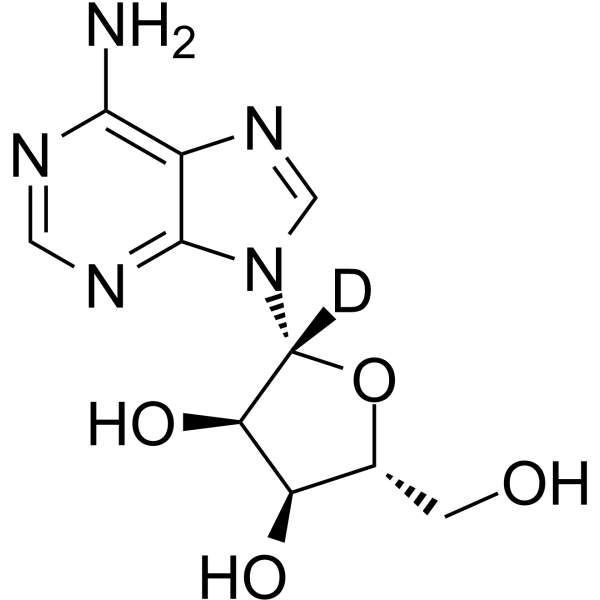Adenosine-d1-1
Modify Date: 2024-01-23 10:01:01

Adenosine-d1-1 structure
|
Common Name | Adenosine-d1-1 | ||
|---|---|---|---|---|
| CAS Number | 119540-53-3 | Molecular Weight | 268.25 | |
| Density | N/A | Boiling Point | N/A | |
| Molecular Formula | C10H12DN5O4 | Melting Point | N/A | |
| MSDS | N/A | Flash Point | N/A | |
Use of Adenosine-d1-1Adenosine-d1-1 is the deuterium labeled Adenosine. Adenosine (Adenine riboside), a ubiquitous endogenous autacoid, acts through the enrollment of four G protein-coupled receptors: A1, A2A, A2B, and A3. Adenosine affects almost all aspects of cellular phys |
| Name | Adenosine-d1-1 |
|---|
| Description | Adenosine-d1-1 is the deuterium labeled Adenosine. Adenosine (Adenine riboside), a ubiquitous endogenous autacoid, acts through the enrollment of four G protein-coupled receptors: A1, A2A, A2B, and A3. Adenosine affects almost all aspects of cellular phys |
|---|---|
| Related Catalog | |
| In Vitro | Stable heavy isotopes of hydrogen, carbon, and other elements have been incorporated into drug molecules, largely as tracers for quantitation during the drug development process. Deuteration has gained attention because of its potential to affect the pharmacokinetic and metabolic profiles of drugs[1]. |
| References |
| Molecular Formula | C10H12DN5O4 |
|---|---|
| Molecular Weight | 268.25 |